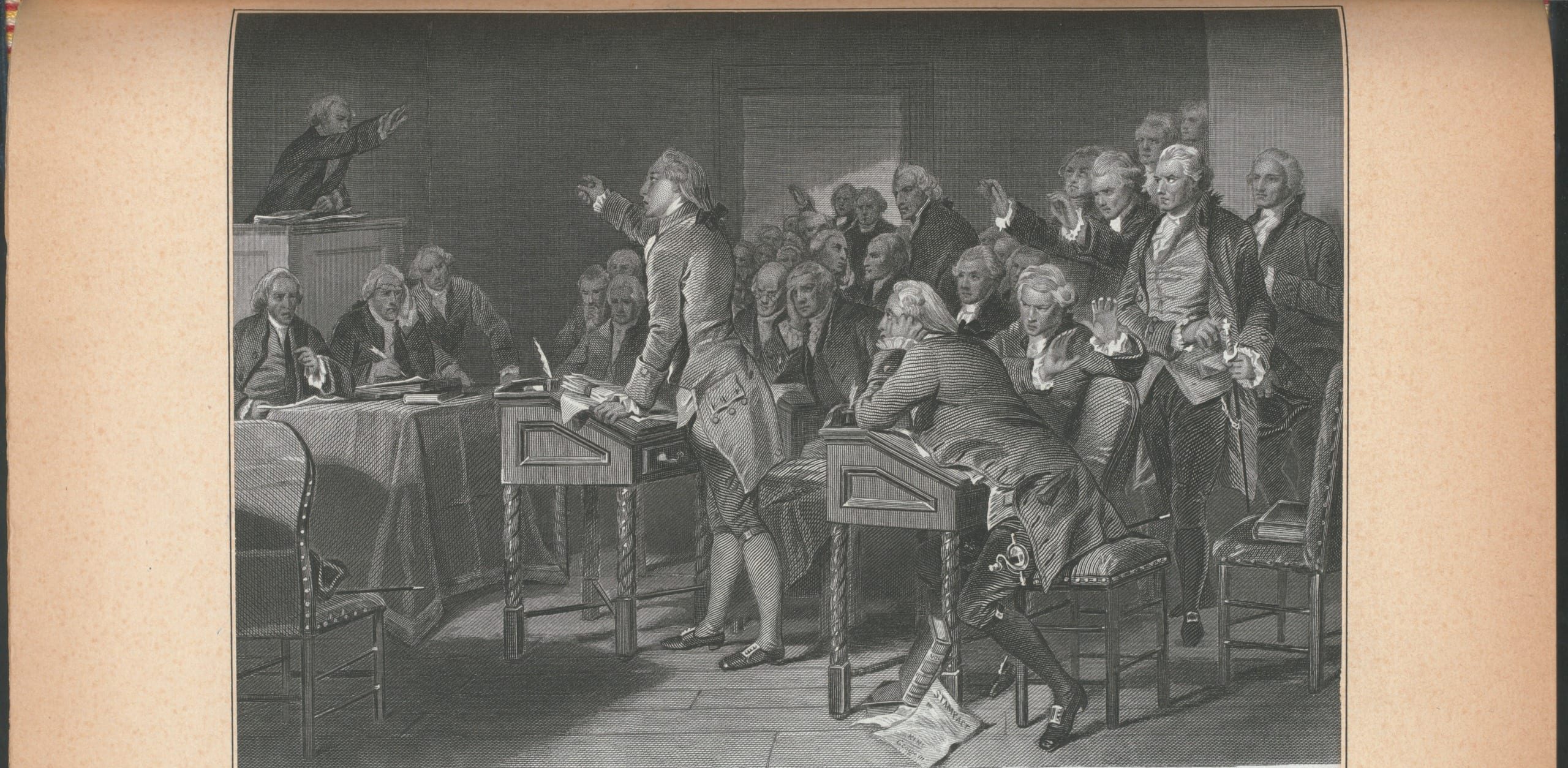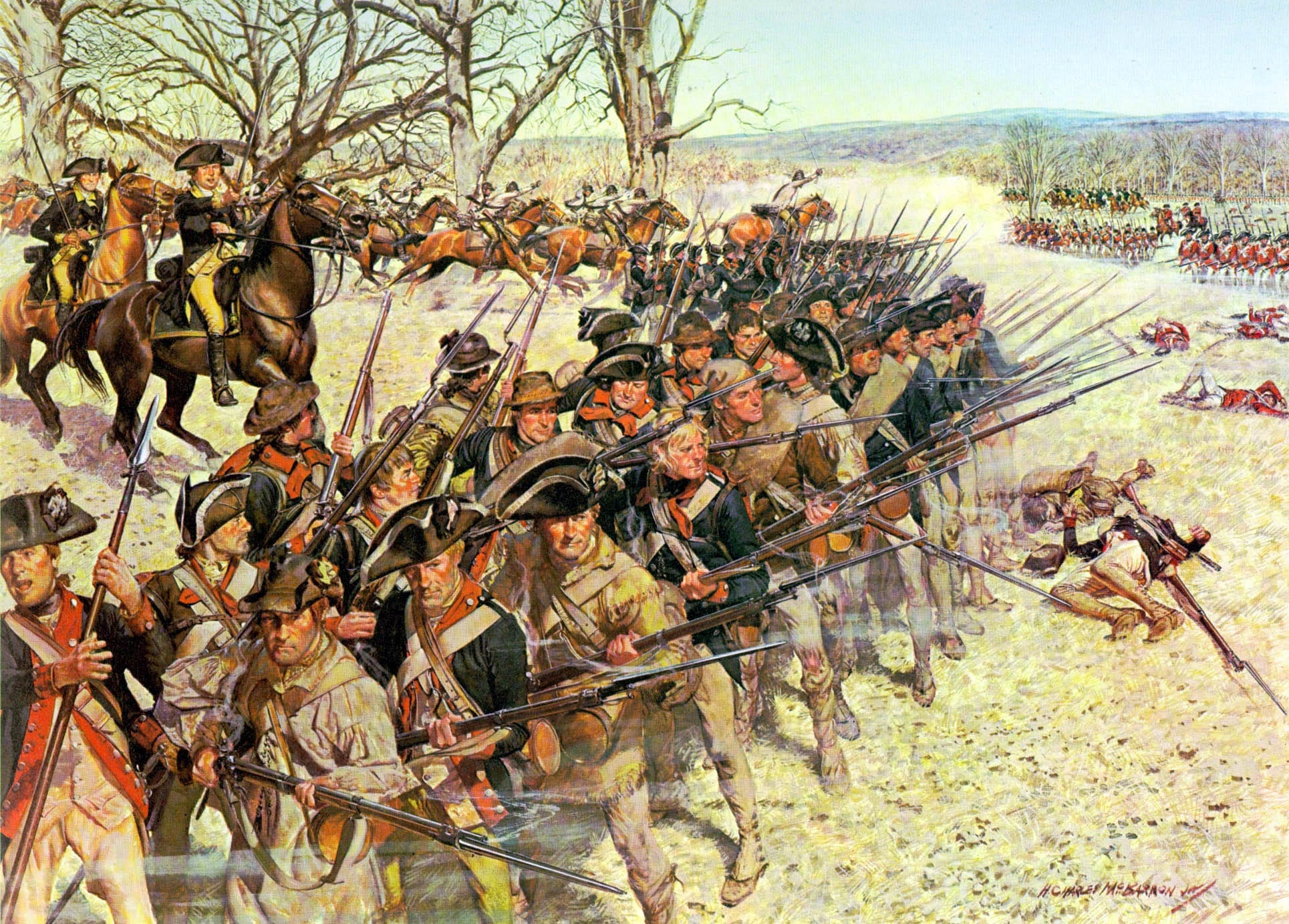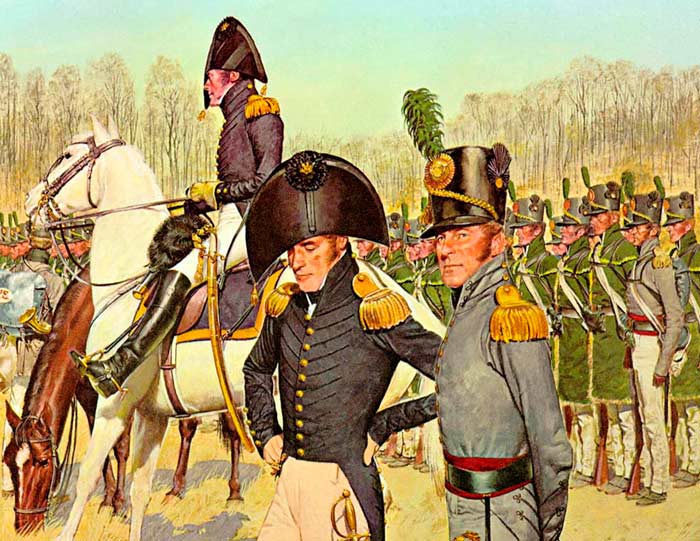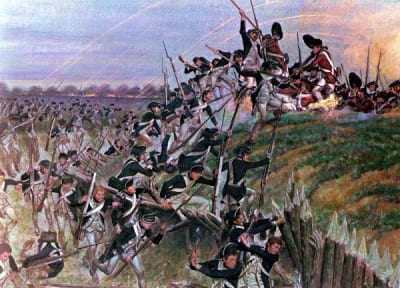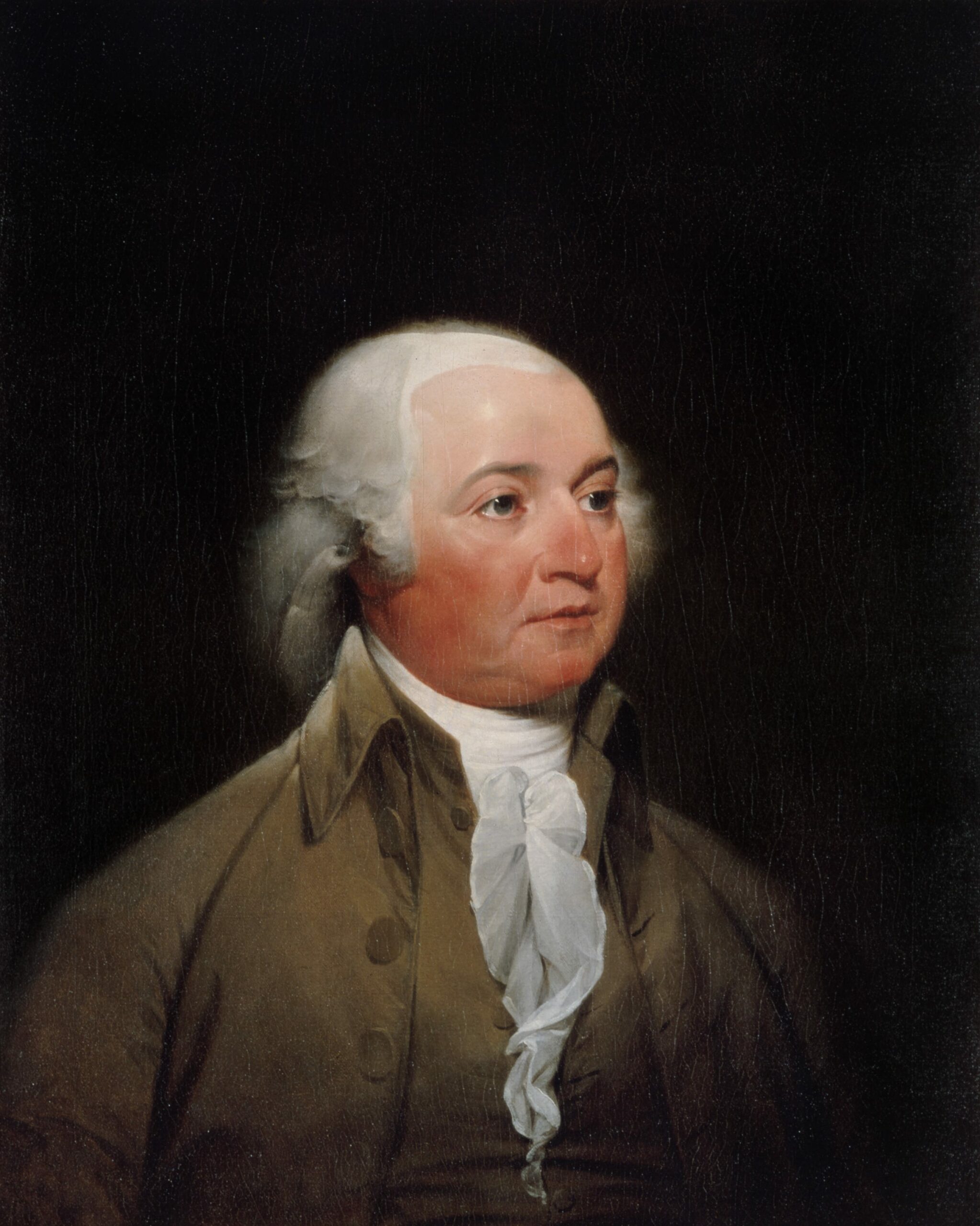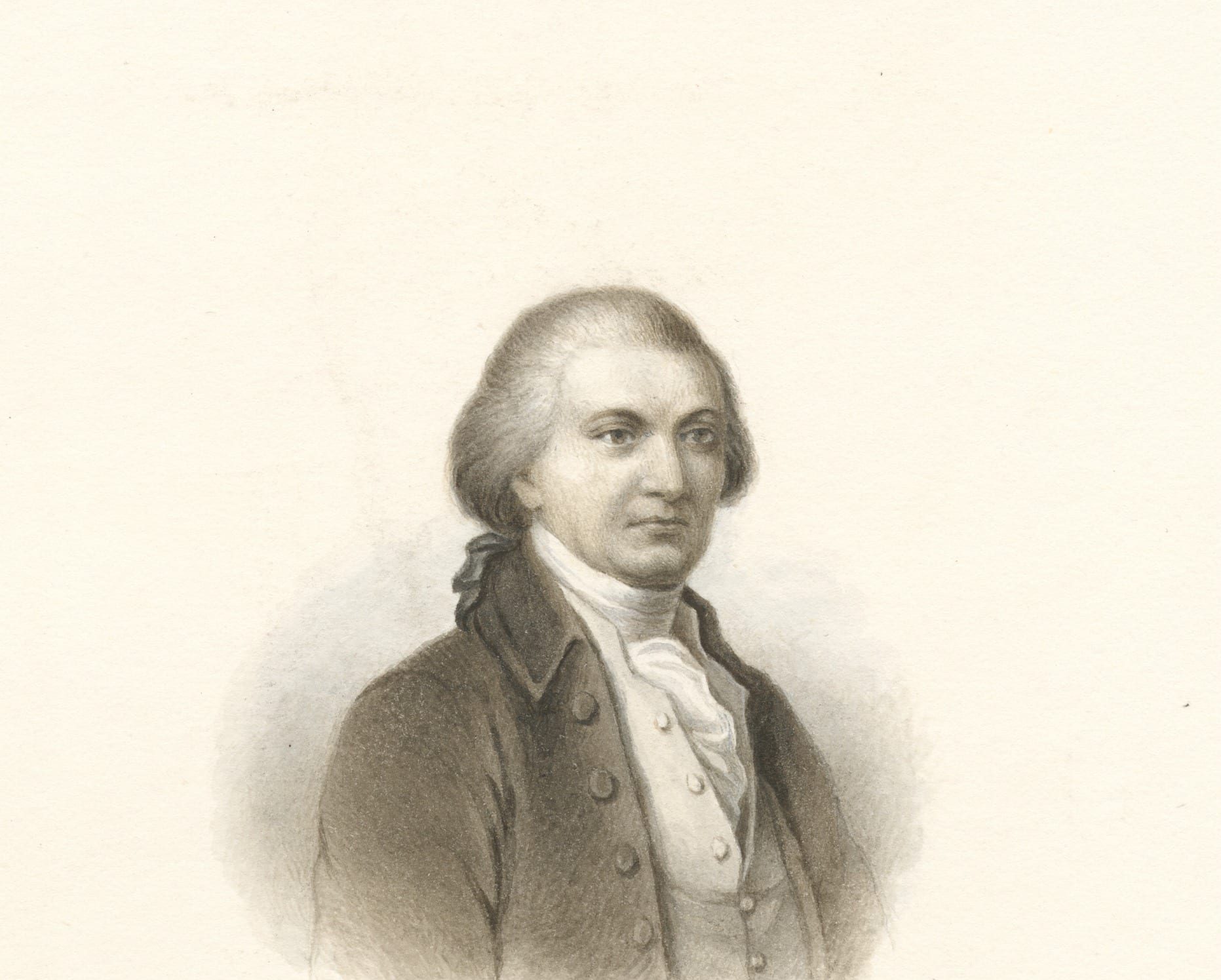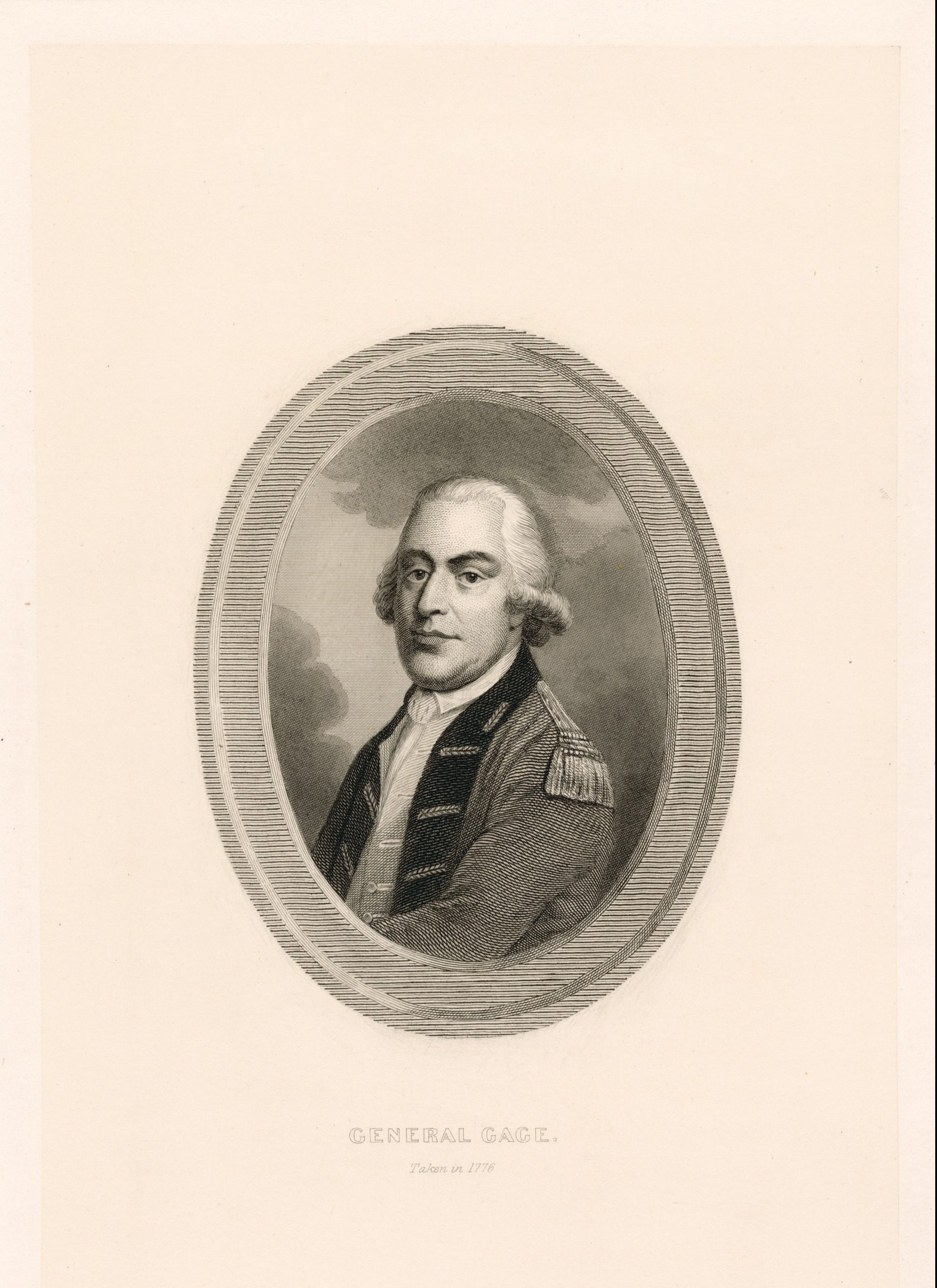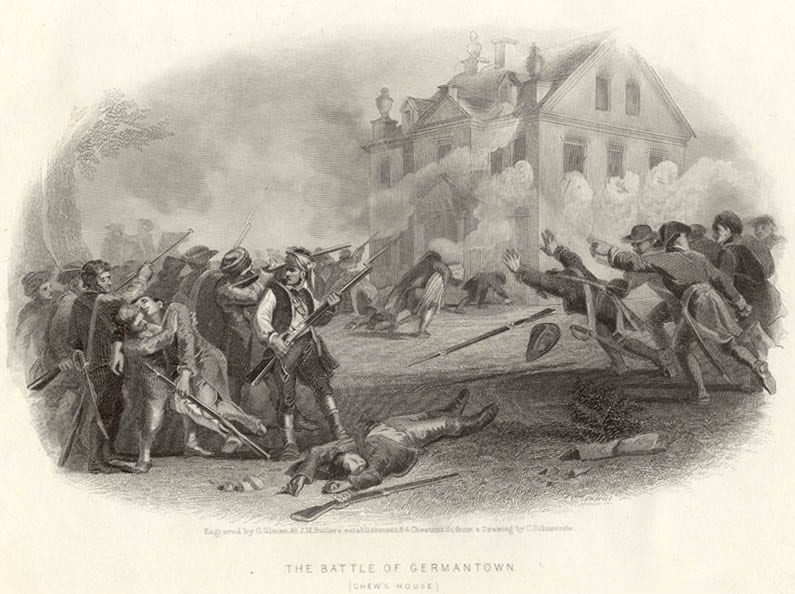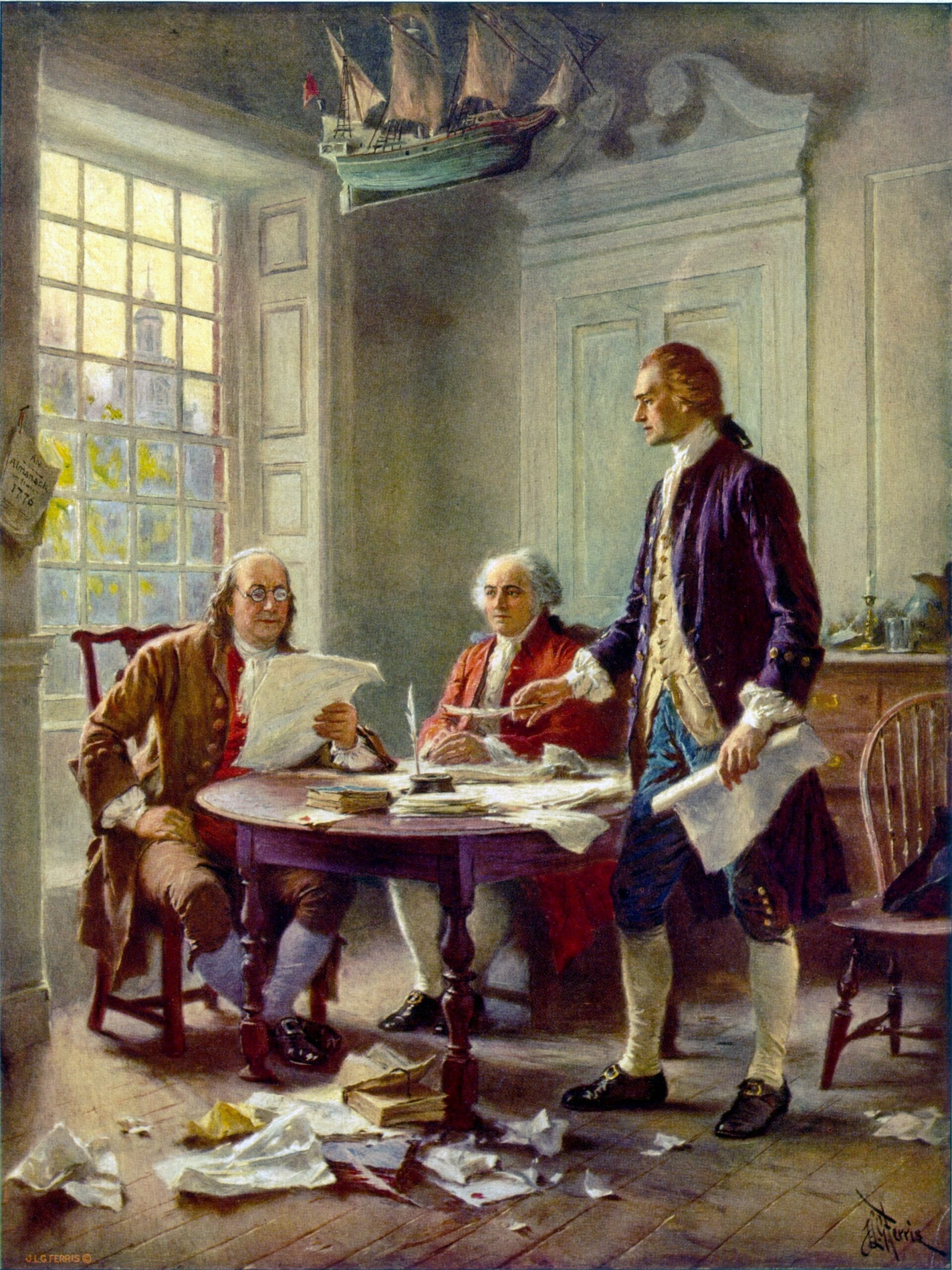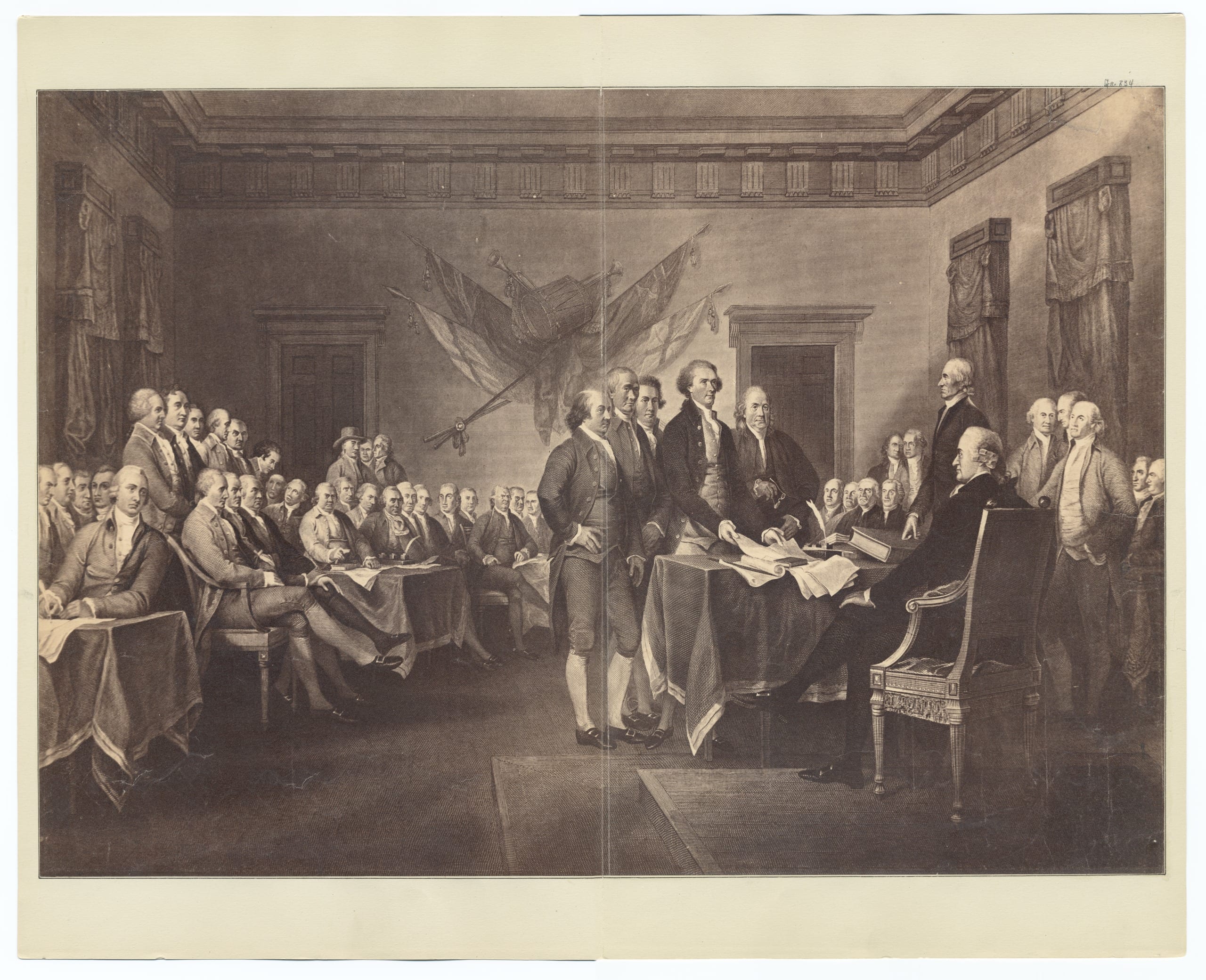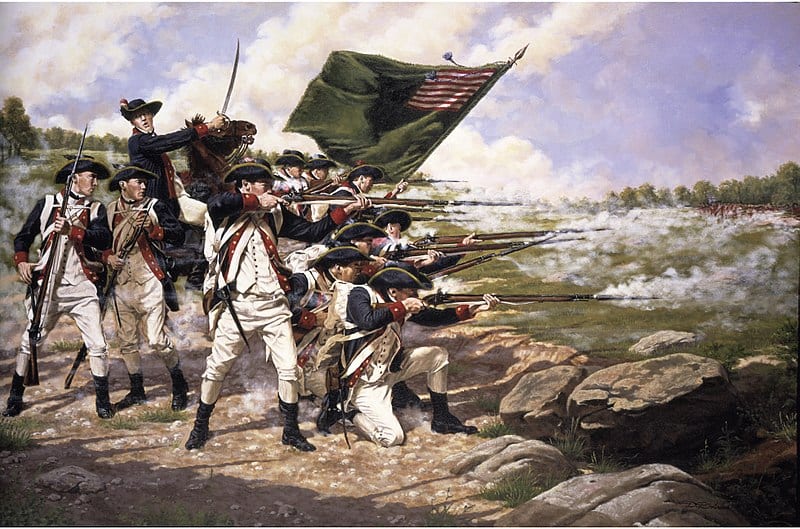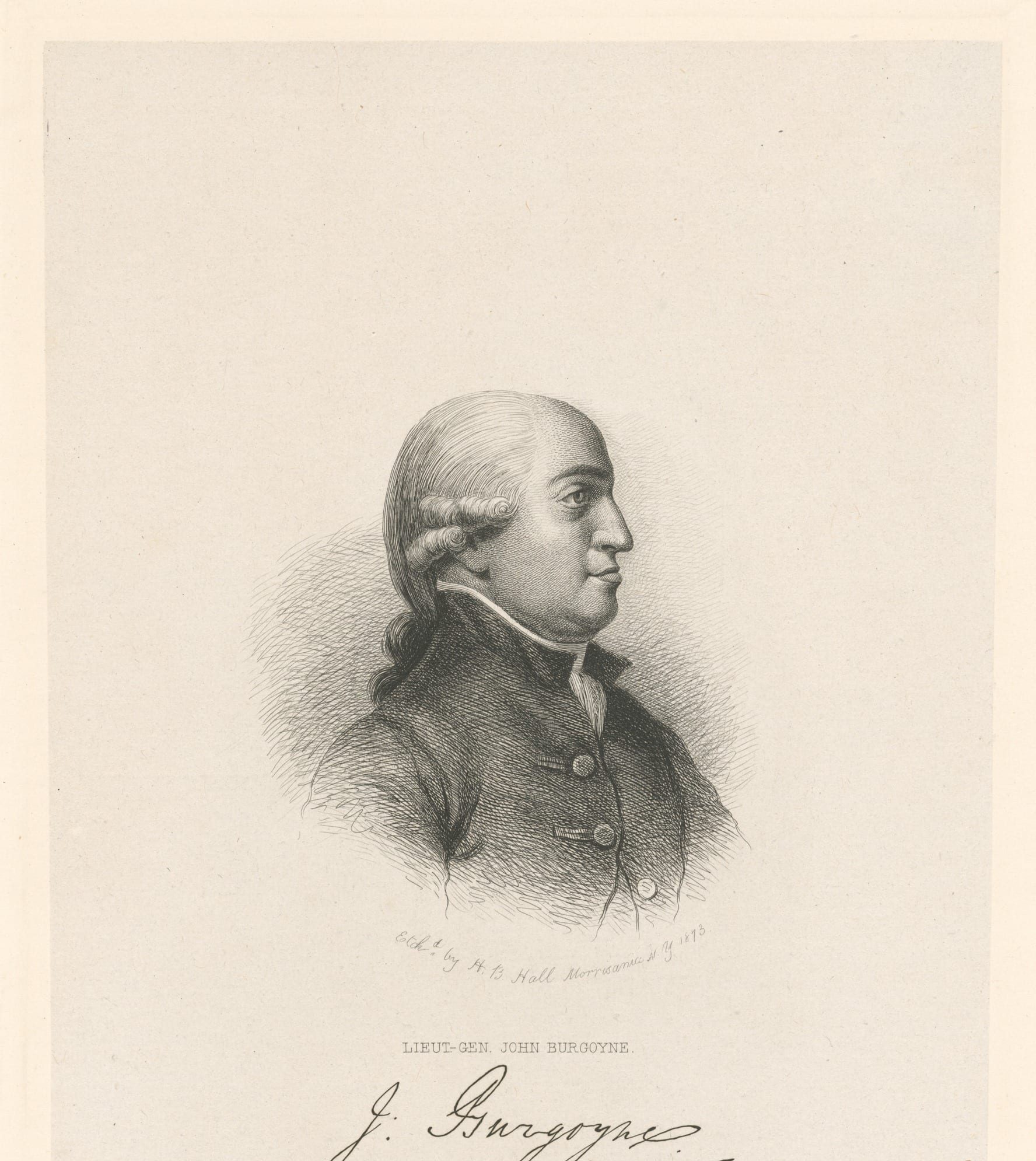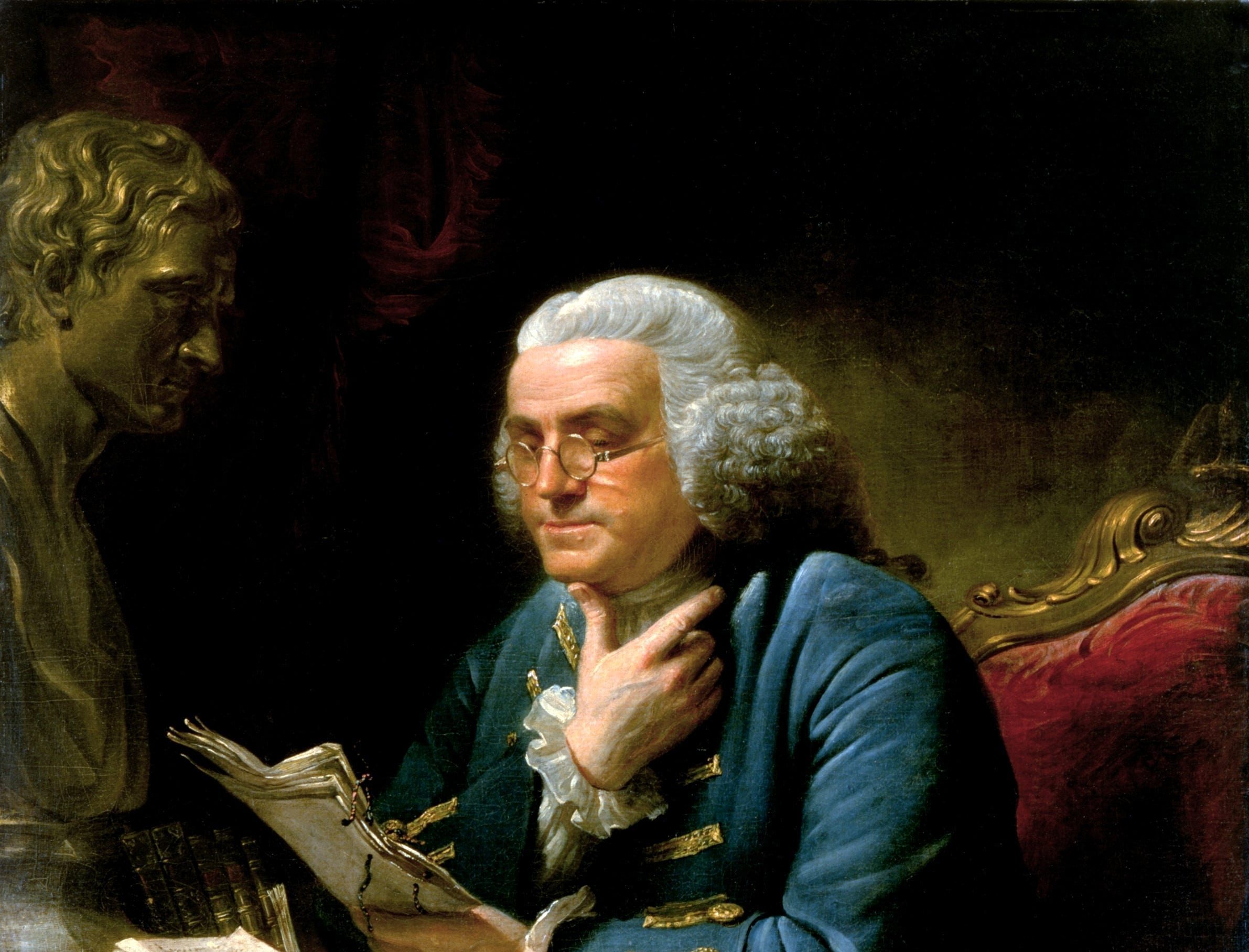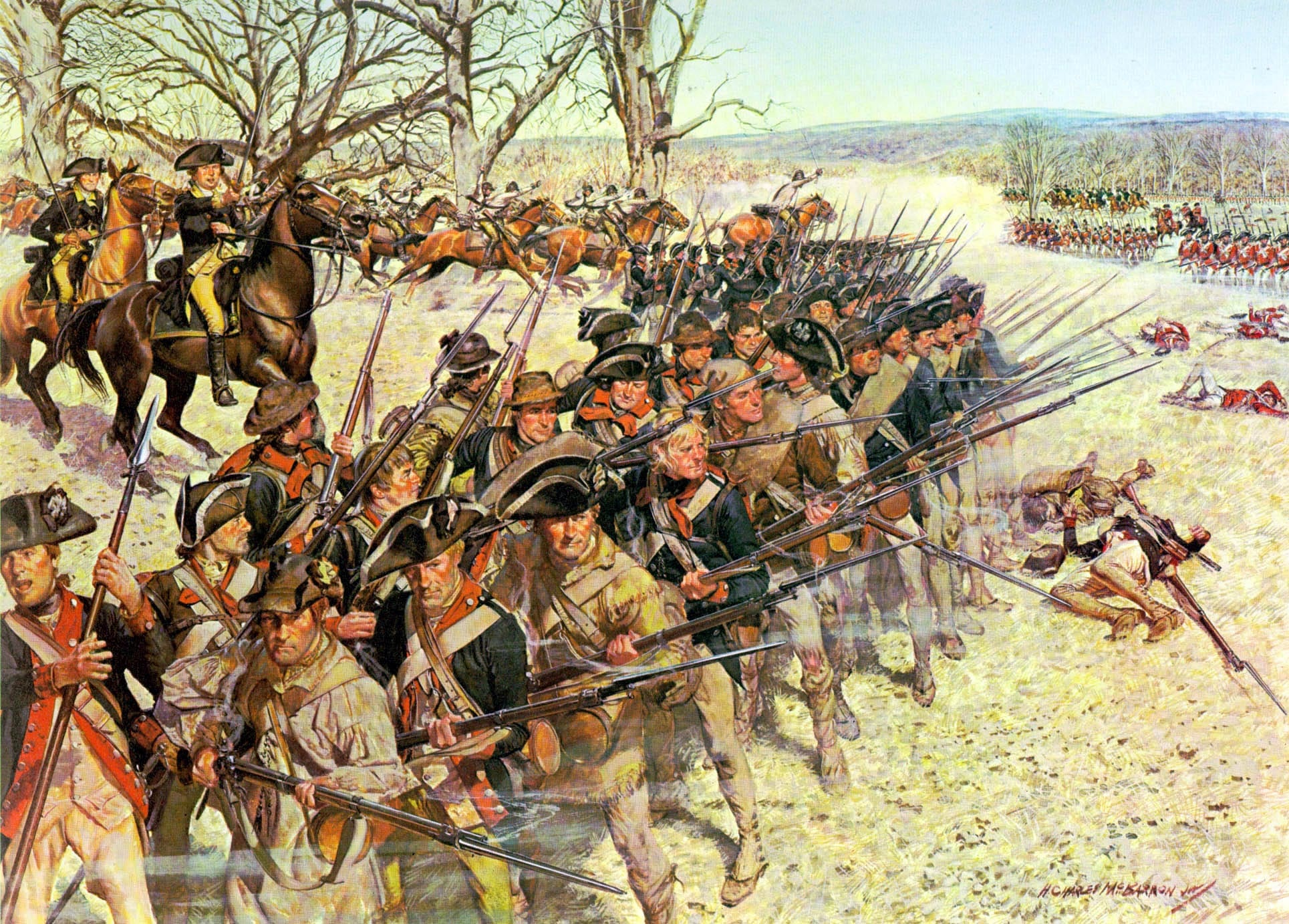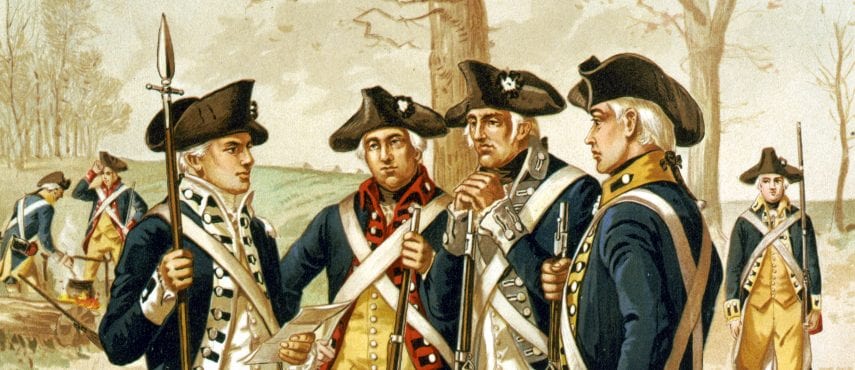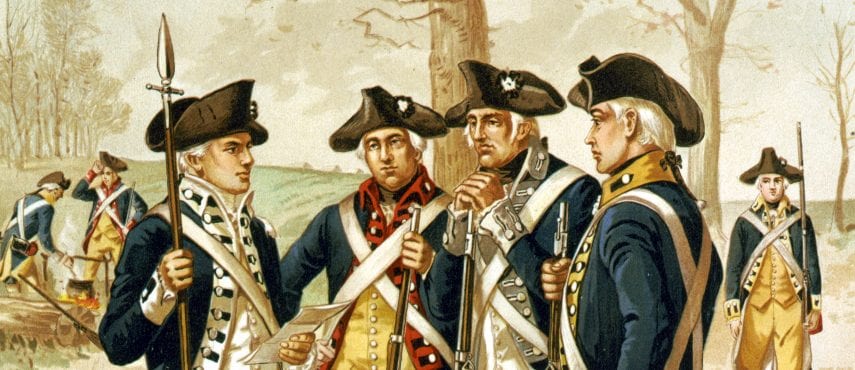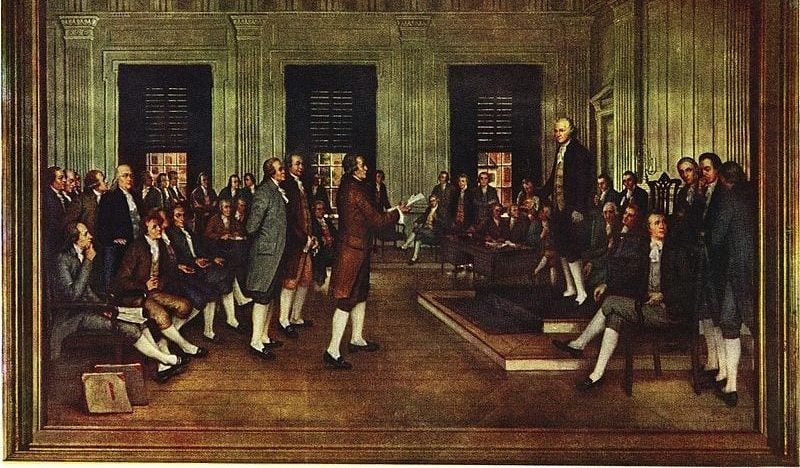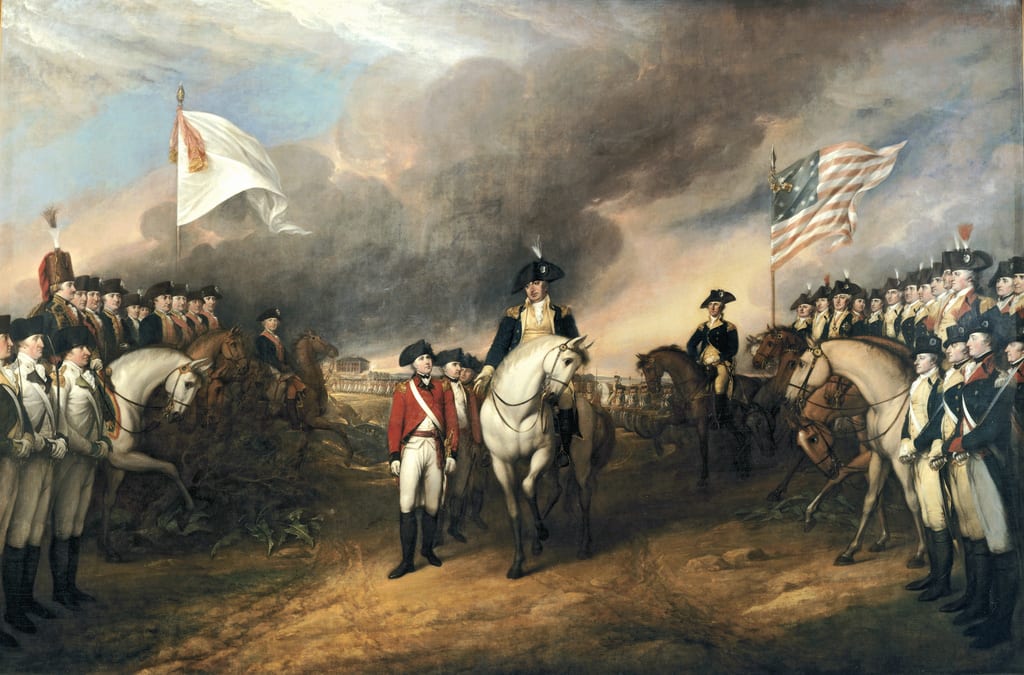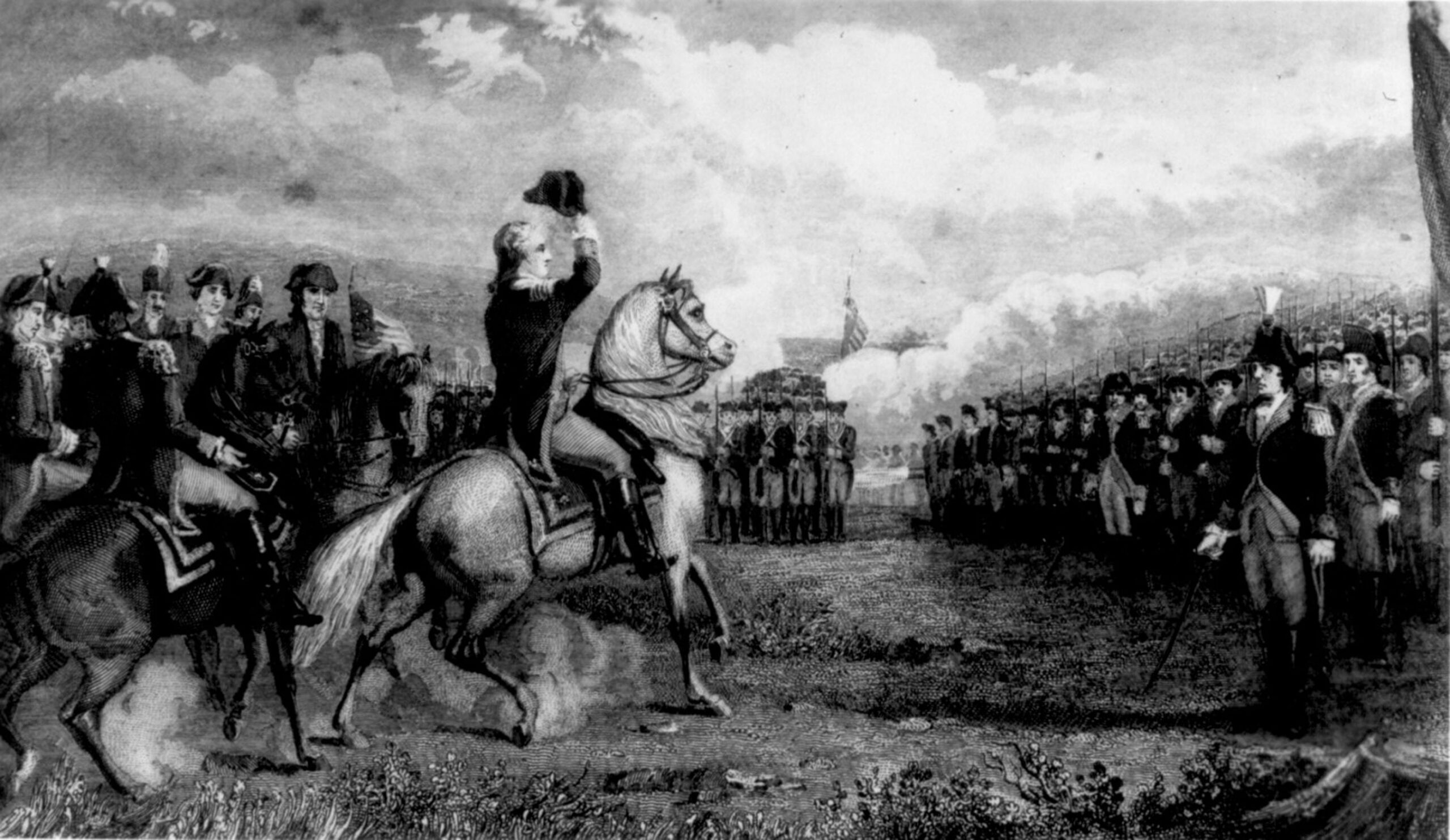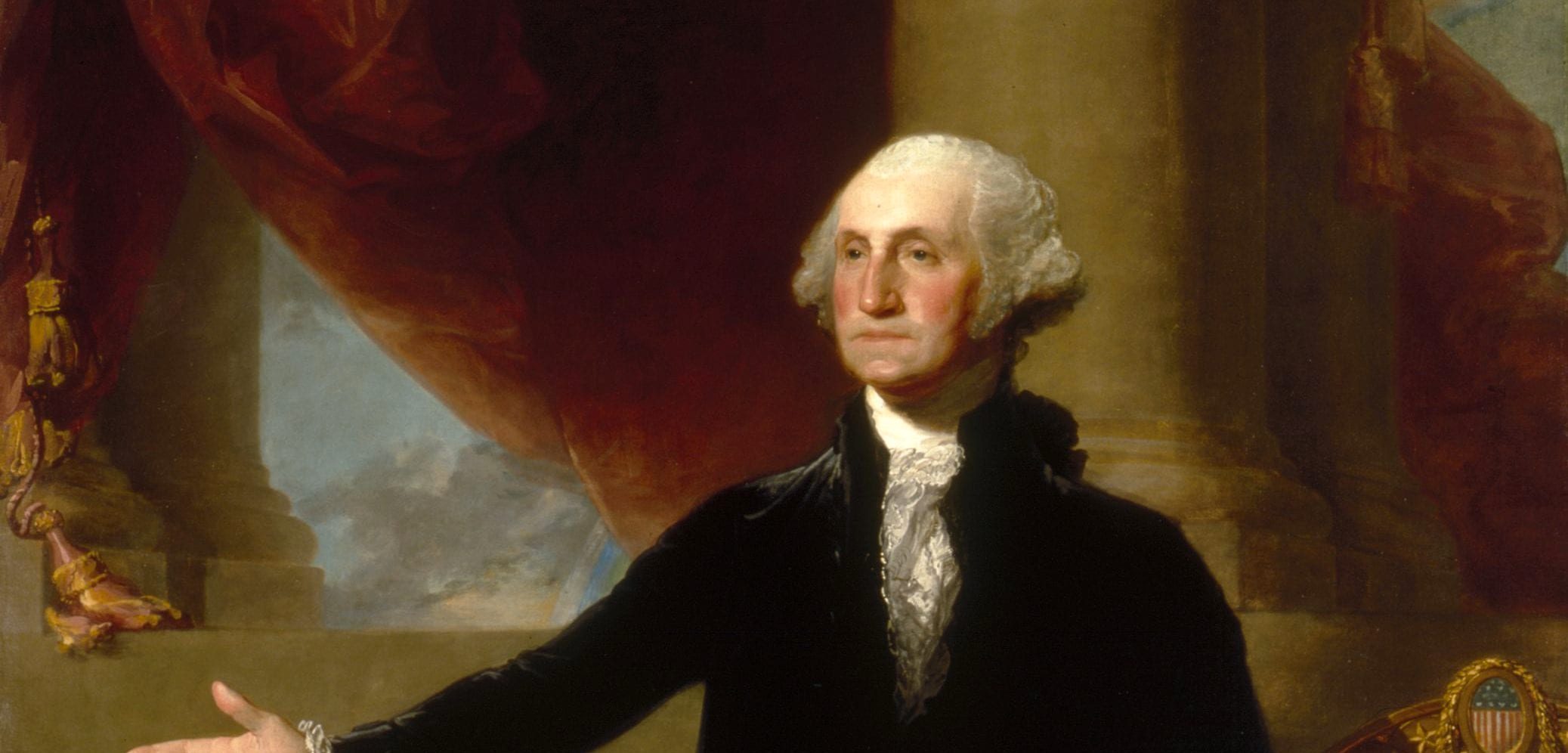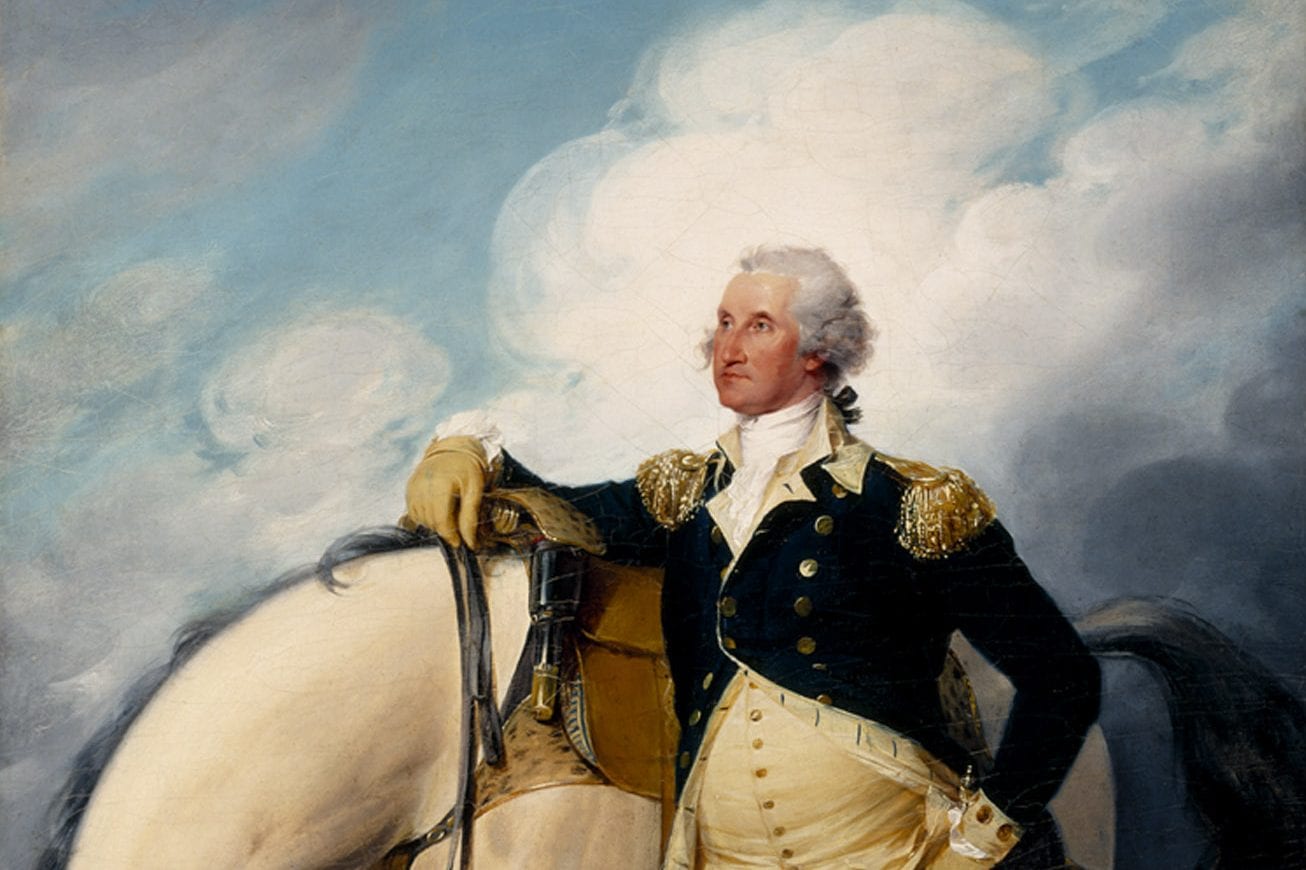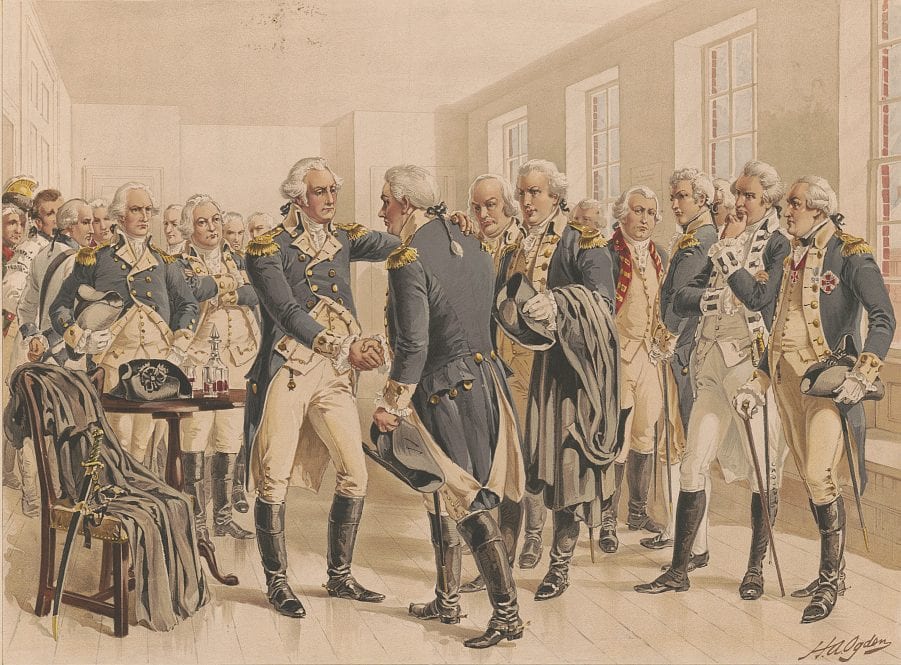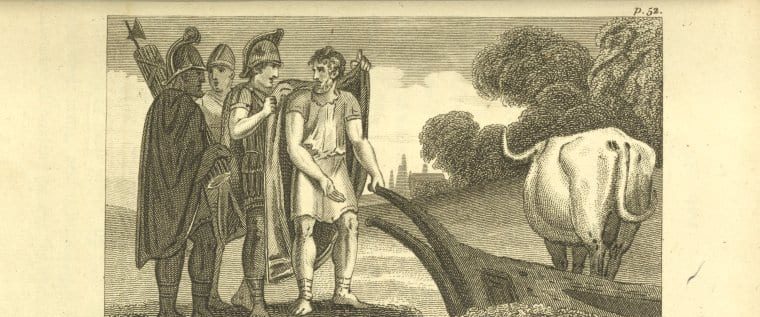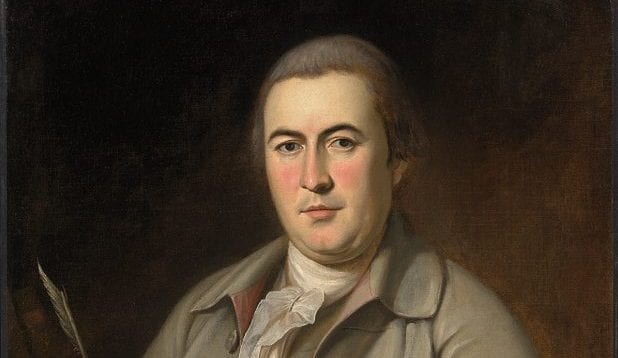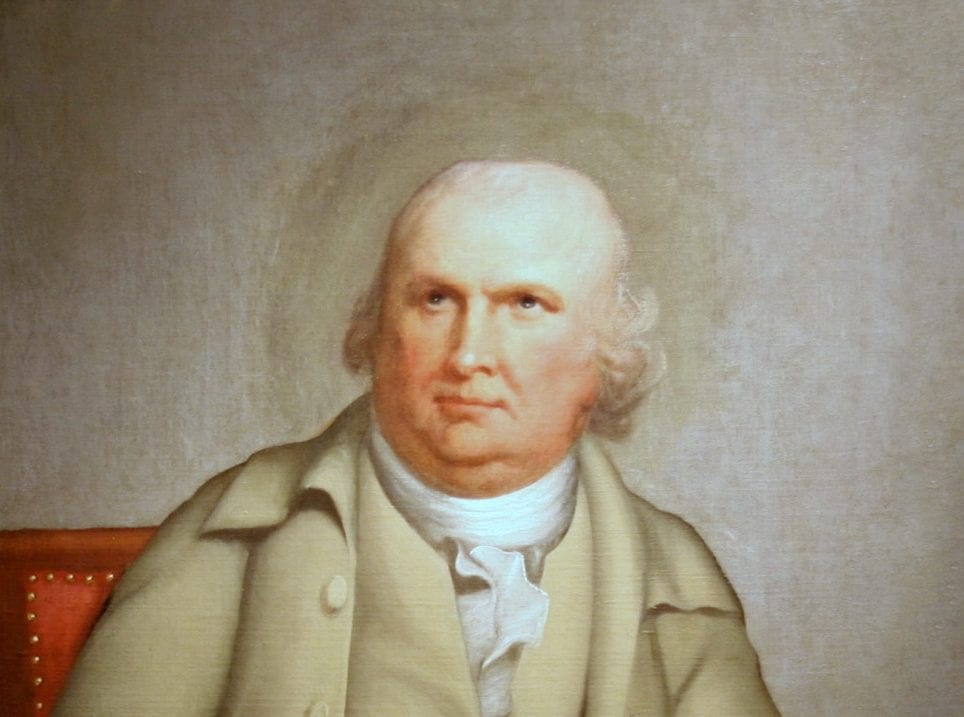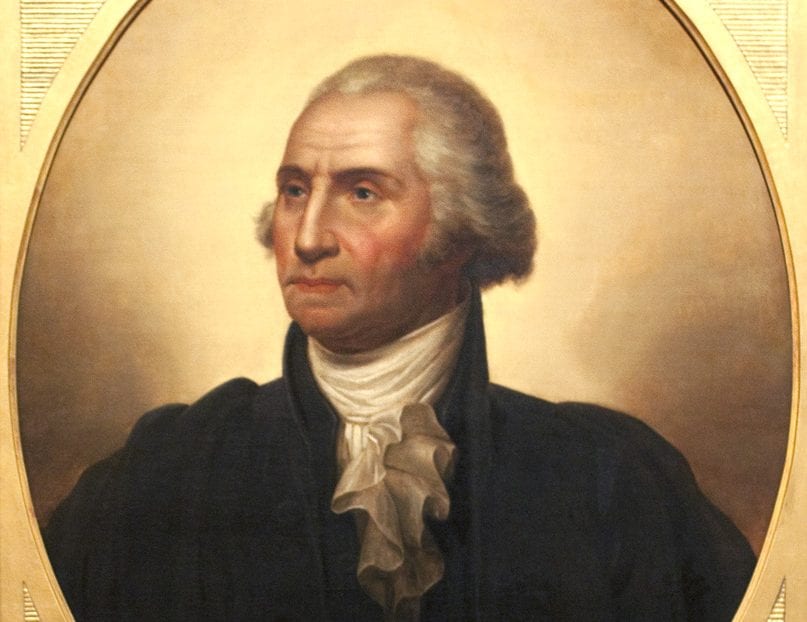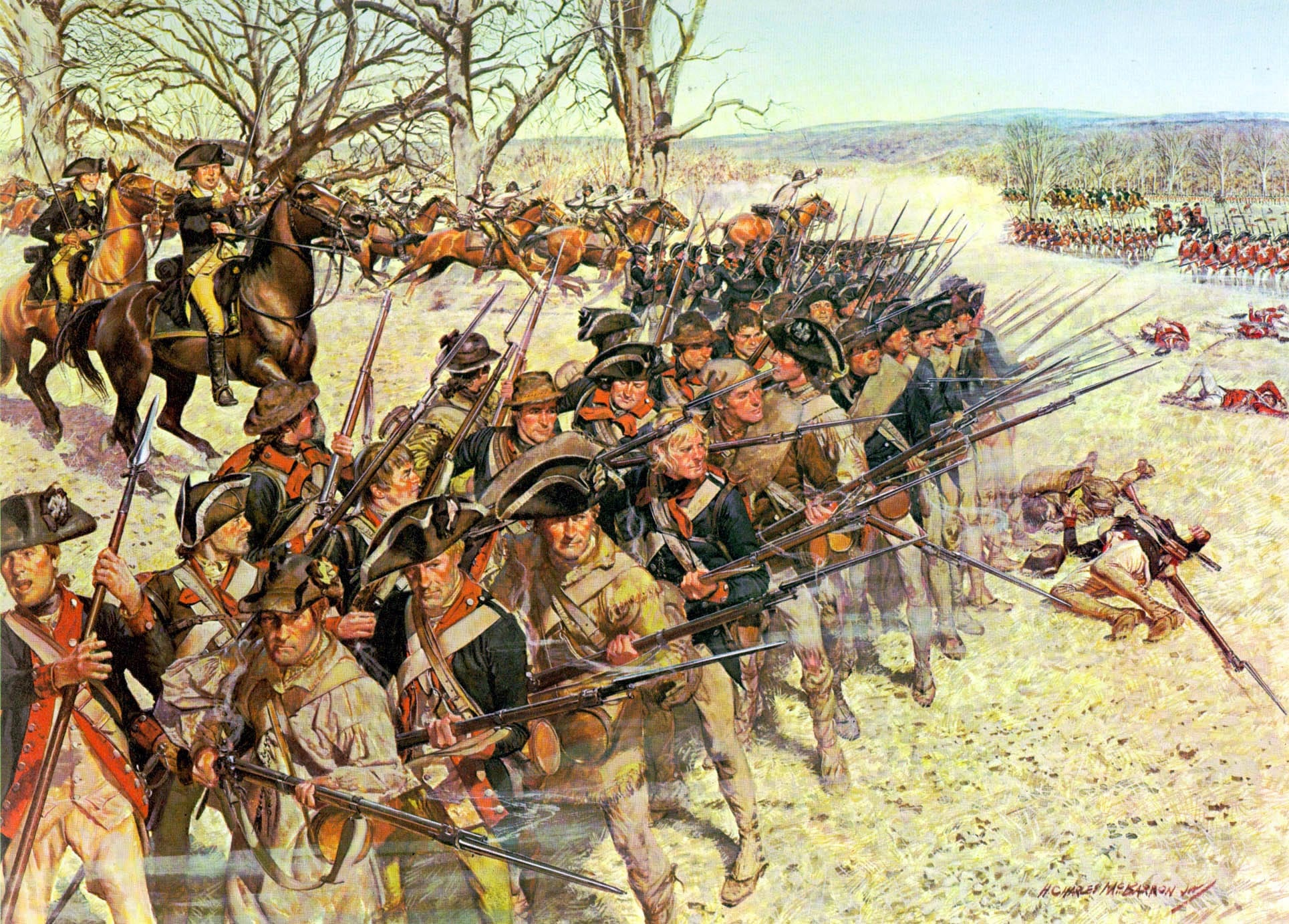
No related resources
Introduction
This section comes from the fourth book of Wealth of Nations that addresses the predominate economic theory of his day—mercantilism. Mercantilists argued that there should be taxes on goods being imported to privilege the domestic market, and that the nation should aim to export more than it imports (see Mercantilism). In this piece, Smith presents his theory of free trade or what he calls “natural liberty” or “perfect freedom” of the market in response to these claims. The merchant class was the main audience for his work.
In this section, we also see Adam Smith’s third use of the concept of the invisible hand for which he is most famous. The first instance occurs in his “History of Astronomy,” written sometime before 1758 but published in 1795, in which Smith discusses the invisible hand of Jupiter to which many peoples—“Polytheistic religions, among savages, as well as in the early ages of Heathen antiquity” attributed the cause of natural disasters to his anger or happiness. The second occurs in his first major work, Theory of Moral Sentiments, published in 1759. In that work, Smith discusses the invisible hand as a force that distributes wealth between the rich and the poor.
Source: Adam Smith, “Of Restraints upon the Importation from Foreign Countries of such Goods as can be Produced at Home,” in An Inquiry into the Nature and Causes of the Wealth of Nations, edited with an Introduction, Notes, Marginal Summary and an Enlarged Index by Edwin Cannan (London: Methuen, [1776] 1904). Vol. 1. https://oll.libertyfund.org/titles/smith-an-inquiry-into-the-nature-and-causes-of-the-wealth-of-nations-cannan-ed-vol-1 Accessed: January 31, 2020.
By restraining, either by high duties, or by absolute prohibitions, the importation of such goods from foreign countries as can be produced at home, the monopoly of the home market is more or less secured to the domestic industry employed in producing them. . . .
That this monopoly of the home-market frequently gives great encouragement to that particular species of industry which enjoys it, and frequently turns towards that employment a greater share of both the labor and stock of the society than would otherwise have gone to it, cannot be doubted. But whether it tends either to increase the general industry of the society, or to give it the most advantageous direction, is not, perhaps, altogether so evident.
The general industry of the society never can exceed what the capital of the society can employ. As the number of workmen that can be kept in employment by any particular person must bear a certain proportion to his capital, so the number of those that can be continually employed by all the members of a great society, must bear a certain proportion to the whole capital of that society, and never can exceed that proportion. No regulation of commerce can increase the quantity of industry in any society beyond what its capital can maintain. It can only divert a part of it into a direction into which it might not otherwise have gone; and it is by no means certain that this artificial direction is likely to be more advantageous to the society than that into which it would have gone of its own accord.
Every individual is continually exerting himself to find out the most advantageous employment for whatever capital he can command. It is his own advantage, indeed, and not that of the society, which he has in view. But the study of his own advantage naturally, or rather necessarily leads him to prefer that employment which is most advantageous to the society.
. . .
But the annual revenue of every society is always precisely equal to the exchangeable value of the whole annual produce of its industry, or rather is precisely the same thing with that exchangeable value. As every individual, therefore, endeavors as much as he can both to employ his capital in the support of domestic industry, and so to direct that industry that its produce may be of the greatest value; every individual necessarily labors to render the annual revenue of the society as great as he can. He generally, indeed, neither intends to promote the public interest, nor knows how much he is promoting it. By preferring the support of domestic to that of foreign industry, he intends only his own security; and by directing that industry in such a manner as its produce may be of the greatest value, he intends only his own gain, and he is in this, as in many other cases, led by an invisible hand to promote an end which was no part of his intention. Nor is it always the worse for the society that it was no part of it. By pursuing his own interest he frequently promotes that of the society more effectually than when he really intends to promote it. I have never known much good done by those who affected to trade for the public good. It is an affectation, indeed, not very common among merchants, and very few words need be employed in dissuading them from it.
What is the species of domestic industry which his capital can employ, and of which the produce is likely to be of the greatest value, every individual, it is evident, can, in his local situation, judge much better than any statesman or lawgiver can do for him. The statesman, who should attempt to direct private people in what manner they ought to employ their capitals, would not only load himself with a most unnecessary attention, but assume an authority which could safely be trusted, not only to no single person, but to no council or senate whatever, and which would no-where be so dangerous as in the hands of a man who had folly and presumption enough to fancy himself fit to exercise it.
To give the monopoly of the home-market to the produce of domestic industry, in any particular art or manufacture, is in some measure to direct private people in what manner they ought to employ their capitals, and must, in almost all cases, be either a useless or a hurtful regulation. If the produce of domestic can be brought there as cheap as that of foreign industry, the regulation is evidently useless. If it cannot, it must generally be hurtful. It is the maxim of every prudent master of a family, never to attempt to make at home what it will cost him more to make than to buy. The tailor does not attempt to make his own shoes, but buys them of the shoemaker. The shoemaker does not attempt to make his own clothes, but employs a tailor. The farmer attempts to make neither the one nor the other, but employs those different artificers. All of them find it for their interest to employ their whole industry in a way in which they have some advantage over their neighbors, and to purchase with a part of its produce, or what is the same thing, with the price of a part of it, whatever else they have occasion for.
What is prudence in the conduct of every private family, can scarce be folly in that of a great kingdom. If a foreign country can supply us with a commodity cheaper than we ourselves can make it, better buy it of them with some part of the produce of our own industry, employed in a way in which we have some advantage.[1] The general industry of the country, being always in proportion to the capital which employs it, will not thereby be diminished, no more than that of the above-mentioned artificers; but only left to find out the way in which it can be employed with the greatest advantage. It is certainly not employed to the greatest advantage, when it is thus directed towards an object which it can buy cheaper than it can make. The value of its annual produce is certainly more or less diminished, when it is thus turned away from producing commodities evidently of more value than the commodity which it is directed to produce. According to the supposition, that commodity could be purchased from foreign countries cheaper than it can be made at home. It could, therefore, have been purchased with a part only of the commodities, or, what is the same thing, with a part only of the price of the commodities, which the industry employed by an equal capital would have produced at home, had it been left to follow its natural course. The industry of the country, therefore, is thus turned away from a more, to a less advantageous employment, and the exchangeable value of its annual produce, instead of being increased, according to the intention of the lawgiver, must necessarily be diminished by every such regulation.
. . .
The natural advantages which one country has over another in producing particular commodities are sometimes so great, that it is acknowledged by all the world to be in vain to struggle with them. By means of glasses, hotbeds, and hot walls, very good grapes can be raised in Scotland, and very good wine too can be made of them at about thirty times the expense for which at least equally good can be brought from foreign countries. Would it be a reasonable law to prohibit the importation of all foreign wines, merely to encourage the making of claret and burgundy in Scotland? But if there would be a manifest absurdity in turning towards any employment, thirty times more of the capital and industry of the country, than would be necessary to purchase from foreign countries an equal quantity of the commodities wanted, there must be an absurdity, though not altogether so glaring, yet exactly of the same kind, in turning towards any such employment a thirtieth, or even a three hundredth part more of either. Whether the advantages which one country has over another, be natural or acquired, is in this respect of no consequence. As long as the one country has those advantages, and the other wants them, it will always be more advantageous for the latter, rather to buy of the former than to make. It is an acquired advantage only, which one artificer has over his neighbor, who exercises another trade; and yet they both find it more advantageous to buy of one another, than to make what does not belong to their particular trades.
Merchants and manufacturers are the people who derive the greatest advantage from this monopoly of the home-market.
. . .
There seem, however, to be two cases in which it will generally be advantageous to lay some burden upon foreign, for the encouragement of domestic industry.
The first is, when some particular sort of industry is necessary for the defense of the country. The defense of Great Britain, for example, depends very much upon the number of its sailors and shipping. The act of navigation, therefore, very properly endeavors to give the sailors and shipping of Great Britain the monopoly of the trade of their own country, in some cases, by absolute prohibitions, and in others by heavy burdens upon the shipping of foreign countries…
When the act of navigation was made, though England and Holland were not actually at war, the most violent animosity subsisted between the two nations. It had begun during the government of the long parliament, which first framed this act, and it broke out soon after in the Dutch wars during that of the Protector and of Charles the Second. It is not impossible, therefore, that some of the regulations of this famous act may have proceeded from national animosity. They are as wise, however, as if they had all been dictated by the most deliberate wisdom. National animosity at that particular time aimed at the very same object which the most deliberate wisdom would have recommended, the diminution of the naval power of Holland, the only naval power which could endanger the security of England.
The act of navigation is not favorable to foreign commerce, or to the growth of that opulence which can arise from it. The interest of a nation in its commercial relations to foreign nations is, like that of a merchant with regard to the different people with whom he deals, to buy as cheap and to sell as dear as possible. But it will be most likely to buy cheap, when by the most perfect freedom of trade it encourages all nations to bring to it the goods which it has occasion to purchase; and, for the same reason, it will be most likely to sell dear, when its markets are thus filled with the greatest number of buyers. The act of navigation, it is true, lays no burden upon foreign ships that come to export the produce of British industry. Even the ancient aliens duty, which used to be paid upon all goods exported as well as imported, has, by several subsequent acts, been taken off from the greater part of the articles of exportation. But if foreigners, either by prohibitions or high duties, are hindered from coming to sell, they cannot always afford to come to buy; because coming without a cargo, they must lose the freight from their own country to Great Britain. By diminishing the number of sellers, therefore, we necessarily diminish that of buyers, and are thus likely not only to buy foreign goods dearer, but to sell our own cheaper, than if there was a more perfect freedom of trade. As defense, however, is of much more importance than opulence, the act of navigation is, perhaps, the wisest of all the commercial regulations of England.
The second case, in which it will generally be advantageous to lay some burden upon foreign for the encouragement of domestic industry, is, when some tax is imposed at home upon the produce of the latter. In this case, it seems reasonable that an equal tax should be imposed upon the like produce of the former. This would not give the monopoly of the home market to domestic industry, nor turn towards a particular employment a greater share of the stock and labor of the country, than what would naturally go to it. It would only hinder any part of what would naturally go to it from being turned away by the tax, into a less natural direction, and would leave the competition between foreign and domestic industry, after the tax, as nearly as possible upon the same footing as before it. In Great Britain, when any such tax is laid upon the produce of domestic industry, it is usual at the same time, in order to stop the clamorous complaints of our merchants and manufacturers, that they will be undersold at home, to lay a much heavier duty upon the importation of all foreign goods of the same kind.
. . . Taxes upon the necessaries of life have nearly the same effect upon the circumstances of the people as a poor soil and a bad climate. Provisions are thereby rendered dearer in the same manner as if it required extraordinary labor and expense to raise them. As in the natural scarcity arising from soil and climate, it would be absurd to direct the people in what manner they ought to employ their capitals and industry, so is it likewise in the artificial scarcity arising from such taxes. To be left to accommodate, as well as they could, their industry to their situation, and to find out those employments in which, notwithstanding their unfavorable circumstances, they might have some advantage either in the home or in the foreign market, is what in both cases would evidently be most for their advantage. To lay a new tax upon them, because they are already overburdened with taxes, and because they already pay too dear for the necessaries of life, to make them likewise pay too dear for the greater part of other commodities, is certainly a most absurd way of making amends.
Such taxes, when they have grown up to a certain height, are a curse equal to the barrenness of the earth and the inclemency of the heavens; and yet it is in the richest and most industrious countries that they have been most generally imposed. No other countries could support so great a disorder. As the strongest bodies only can live and enjoy health, under an unwholesome regimen; so the nations only, that in every sort of industry have the greatest natural and acquired advantages, can subsist and prosper under such taxes. Holland is the country in Europe in which they abound most, and which from peculiar circumstances continues to prosper, not by means of them, as has been most absurdly supposed, but in spite of them.
As there are two cases in which it will generally be advantageous to lay some burden upon foreign, for the encouragement of domestic industry; so there are two others in which it may sometimes be a matter of deliberation; in the one, how far it is proper to continue the free importation of certain foreign goods; and in the other, how far, or in what manner, it may be proper to restore that free importation after it has been for some time interrupted.
The case in which it may sometimes be a matter of deliberation how far it is proper to continue the free importation of certain foreign goods, is, when some foreign nation restrains by high duties or prohibitions the importation of some of our manufactures into their country. Revenge in this case naturally dictates retaliation, and that we should impose the like duties and prohibitions upon the importation of some or all of their manufactures into ours. Nations accordingly seldom fail to retaliate in this manner. . . . In 1697 the English prohibited the importation of bone lace, the manufacture of Flanders. The government of that country, at that time under the dominion of Spain, prohibited in return the importation of English woolens. In 1700, the prohibition of importing bone lace into England, was taken off upon condition that the importation of English woolens into Flanders should be put on the same footing as before.
There may be good policy in retaliations of this kind, when there is a probability that they will procure the repeal of the high duties or prohibitions complained of. The recovery of a great foreign market will generally more than compensate the transitory inconveniency of paying dearer during a short time for some sorts of goods. To judge whether such retaliations are likely to produce such an effect, does not, perhaps, belong so much to the science of a legislator, whose deliberations ought to be governed by general principles which are always the same, as to the skill of that insidious and crafty animal, vulgarly called a statesman or politician, whose councils are directed by the momentary fluctuations of affairs. When there is no probability that any such repeal can be procured, it seems a bad method of compensating the injury done to certain classes of our people, to do another injury ourselves, not only to those classes, but to almost all the other classes of them. When our neighbors prohibit some manufacture of ours, we generally prohibit, not only the same, for that alone would seldom affect them considerably, but some other manufacture of theirs. This may no doubt give encouragement to some particular class of workmen among ourselves, and by excluding some of their rivals, may enable them to raise their price in the home-market. Those workmen, however, who suffered by our neighbors prohibition will not be benefited by ours. On the contrary, they and almost all the other classes of our citizens will thereby be obliged to pay dearer than before for certain goods. Every such law, therefore, imposes a real tax upon the whole country, not in favor of that particular class of workmen who were injured by our neighbors prohibition, but of some other class.
The case in which it may sometimes be a matter of deliberation, how far, or in what manner, it is proper to restore the free importation of foreign goods, after it has been for some time interrupted, is, when particular manufactures, by means of high duties or prohibitions upon all foreign goods which can come into competition with them, have been so far extended as to employ a great multitude of hands. Humanity may in this case require that the freedom of trade should be restored only by slow gradations, and with a good deal of reserve and circumspection. Were those high duties and prohibitions taken away all at once, cheaper foreign goods of the same kind might be poured so fast into the home market, as to deprive all at once many thousands of our people of their ordinary employment and means of subsistence. The disorder which this would occasion might no doubt be very considerable. It would in all probability, however, be much less than is commonly imagined, for the two following reasons:
First, all those manufactures, of which any part is commonly exported to other European countries without a bounty, could be very little affected by the freest importation of foreign goods. Such manufactures must be sold as cheap abroad as any other foreign goods of the same quality and kind, and consequently must be sold cheaper at home. . . . Secondly, though a great number of people should, by thus restoring the freedom of trade, be thrown all at once out of their ordinary employment and common method of subsistence, it would by no means follow that they would thereby be deprived either of employment or subsistence. By the reduction of the army and navy at the end of the late war, more than a hundred thousand soldiers and seamen, a number equal to what is employed in the greatest manufactures, were all at once thrown out of their ordinary employment; but, though they no doubt suffered some inconveniency, they were not thereby deprived of all employment and subsistence. The greater part of the seamen, it is probable, gradually betook themselves to the merchant-service as they could find occasion, and in the meantime both they and the soldiers were absorbed in the great mass of the people, and employed in a great variety of occupations. Not only no great convulsion, but no sensible disorder arose from so great a change in the situation of more than a hundred thousand men, all accustomed to the use of arms, and many of them to rapine and plunder. The number of vagrants was scarce any-where sensibly increased by it, even the wages of labor were not reduced by it in any occupation, so far as I have been able to learn, except in that of seamen in the merchant-service. . . . Soldiers and seamen, indeed, when discharged from the king’s service, are at liberty to exercise any trade, within any town or place of Great Britain or Ireland. Let the same natural liberty of exercising what species of industry they please, be restored to all his majesty’s subjects, in the same manner as to soldiers and seamen; that is, break down the exclusive privileges of corporations, and repeal the statute of apprenticeship, both which are real encroachments upon natural liberty, and add to these the repeal of the law of settlements, so that a poor workman, when thrown out of employment either in one trade or in one place, may seek for it in another trade or in another place, without the fear either of a prosecution or of a removal, and neither the public nor the individuals will suffer much more from the occasional disbanding some particular classes of manufacturers, than from that of soldiers. Our manufacturers have no doubt great merit with their country, but they cannot have more than those who defend it with their blood, nor deserve to be treated with more delicacy.
To expect, indeed, that the freedom of trade should ever be entirely restored in Great Britain, is as absurd as to expect that an Oceana[2] or Utopia[3] should ever be established in it. Not only the prejudices of the public, but what is much more unconquerable, the private interests of many individuals, irresistibly oppose it. Were the officers of the army to oppose with the same zeal and unanimity any reduction in the number of forces, with which master manufacturers set themselves against every law that is likely to increase the number of their rivals in the home market; were the former to animate their soldiers, in the same manner as the latter enflame their workmen, to attack with violence and outrage the proposers of any such regulation; to attempt to reduce the army would be as dangerous as it has now become to attempt to diminish in any respect the monopoly which our manufacturers have obtained against us. This monopoly has so much increased the number of some particular tribes of them, that, like an overgrown standing army, they have become formidable to the government, and upon many occasions intimidate the legislature. The member of parliament who supports every proposal for strengthening this monopoly, is sure to acquire not only the reputation of understanding trade, but great popularity and influence with an order of men whose numbers and wealth render them of great importance. If he opposes them, on the contrary, and still more if he has authority enough to be able to thwart them, neither the most acknowledged probity, nor the highest rank, nor the greatest public services, can protect him from the most infamous abuse and detraction, from personal insults, nor sometimes from real danger, arising from the insolent outrage of furious and disappointed monopolists.

Conversation-based seminars for collegial PD, one-day and multi-day seminars, graduate credit seminars (MA degree), online and in-person.











